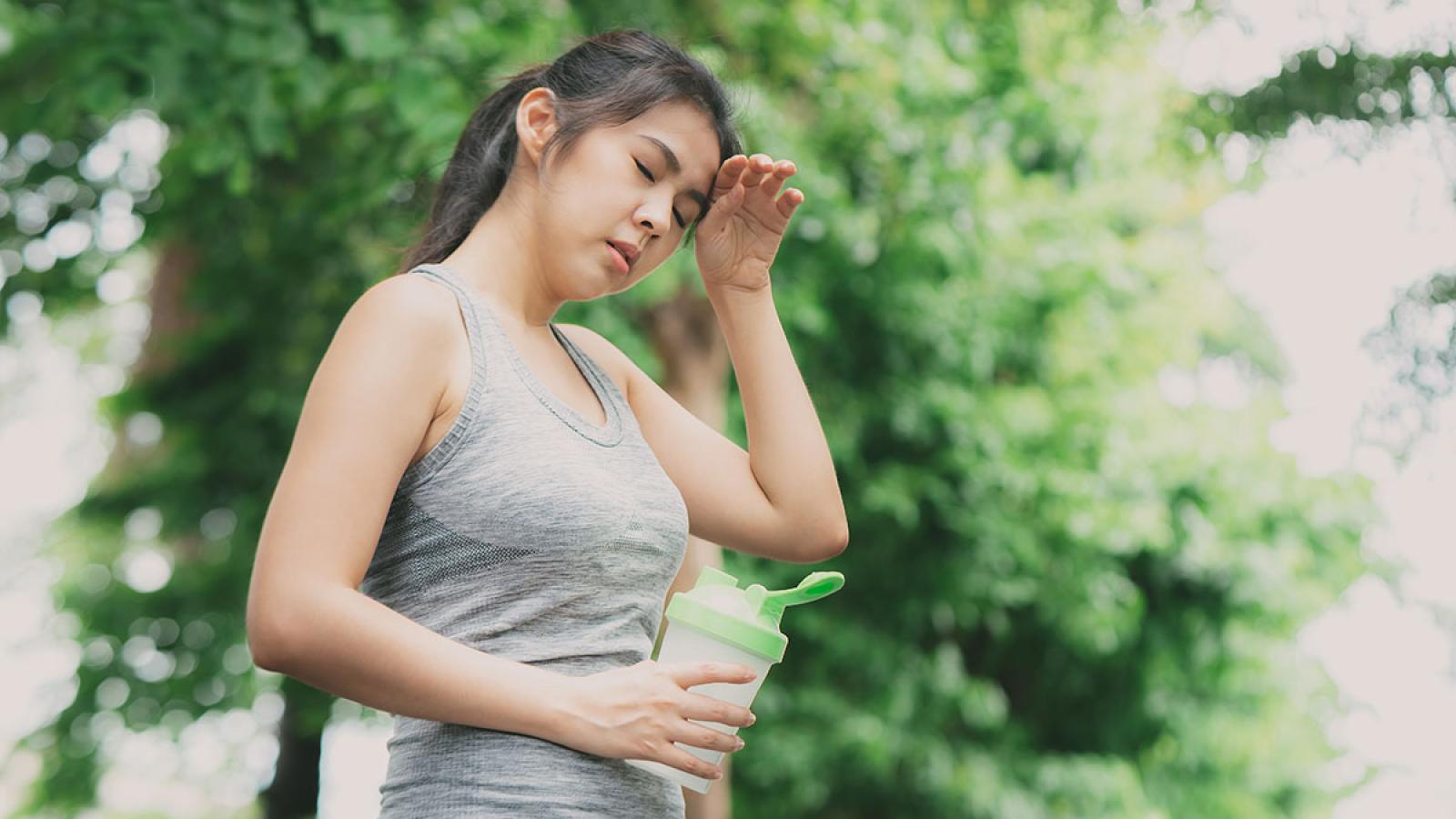Don’t Forget to Hydrate

Written by Bruce Greene, MD, MHA
The spring and summer months present a challenge to the outdoor athlete to beat the heat and humidity and avoid associated physical dangers. The risk of heat-related illness is a reality for the “weekend warrior” as well as the well-conditioned athlete.
The key to limiting the negative effects of the heat is to listen to your body. Know the signs and symptoms of dehydration, and know what steps to take to avoid it in the first place, or correct it if it does occur.
During exercise, evaporation is the primary mechanism of heat dissipation. The evaporation of sweat from the skin’s surface assists the body in regulating core temperature. On humid days, the air is more saturated and the body has more trouble adequately evaporating sweat from the skin’s surface. As a result, the core temperature rises rapidly.
When signs of dehydration are recognized it is important to replenish lost fluids immediately. Signs and symptoms may include thirst, fatigue, lethargy, irritability, a decrease in performance, and general discomfort. Headache, weakness, dizziness, cramps, chills, nausea, and/or vomiting, may follow. Thirst is not a reliable indicator – by the time you are thirsty, you may have already lost too much fluid.
Generally speaking, drinking water is a great way to hydrate and rehydrate, and water is usually readily available. However, if exercise lasts more than 45 minutes or is intense, a sports drink should be consumed during and/or after exercise to help replace lost electrolytes. Sports drinks containing a 6 – 8% carbohydrate solution are best. Carbohydrate concentrations of greater than 8% slow fluid absorption and are not recommended during exercise. Beverages containing caffeine, alcohol, or carbonation are discouraged.
To ensure proper pre-exercise hydration, you should drink at least 17 to 20 oz of water or a sports drink 2 to 3 hours before exercise and 7 to 10 oz of water or sports drink 10 to 20 minutes before exercise.
Post-exercise hydration should aim to restore fluid lost during the exercise session and should be completed within two hours of cessation of activity. Water and/or a sports drink are recommended beverages, and at least 20 oz of fluid per pound of weight loss should be consumed..
Two easy checks to estimate hydration status is weight loss and urine color. If you’ve lost 3% or more of your body weight during an exercise session (weigh yourself before and after), you are not maintaining proper hydration. Additionally, the color of your urine at exercise time and throughout the day should be more on the clear side, not deep yellow or orange, if you are well hydrated.
Keeping well hydrated should be a top priority among those exercising in high heat and humid conditions. By following the above guidelines, not only will you feel better during exercise and be able to perform to the best of your ability, but you will also avoid perhaps life-threatening heat illness.

